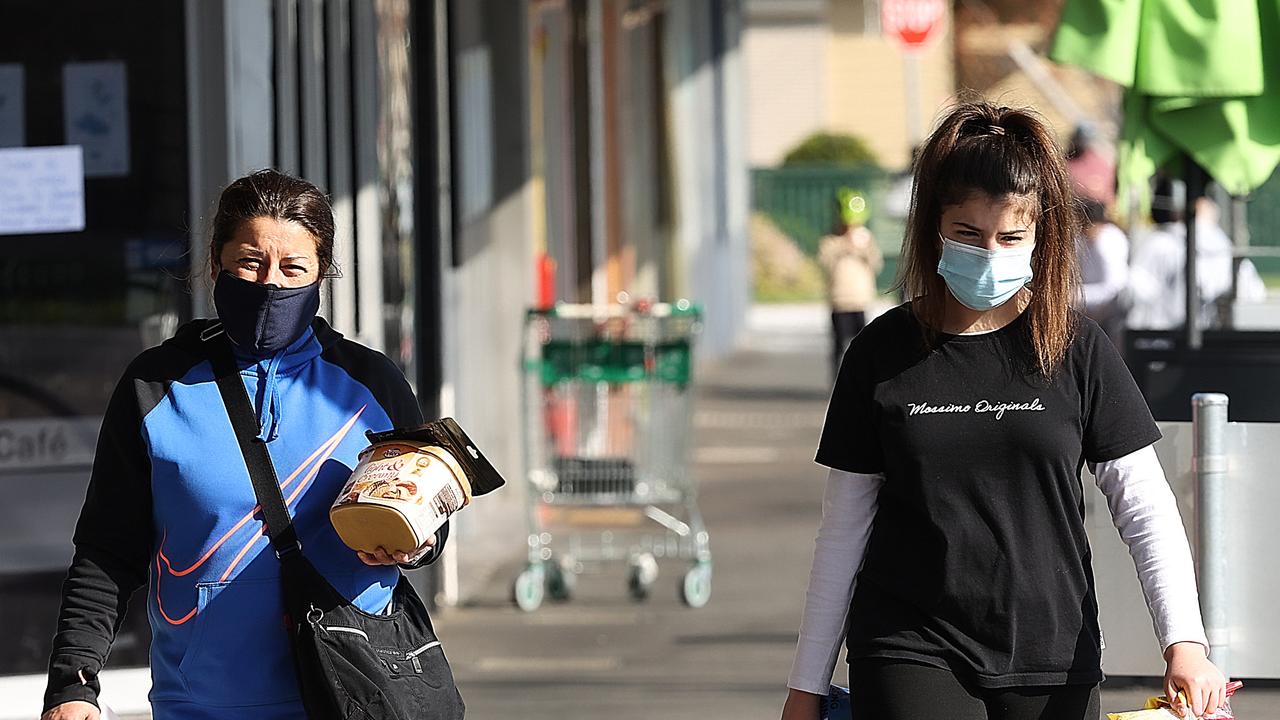Why Australians could be wearing masks indefinitely
Australians will likely be wearing masks indefinitely – one of a number of Covid-19 measures that could be with us for years.
Many Australians are beginning to enjoy more freedoms as cities like Sydney gradually open up but there are certain measures that are likely to stay with us.
Melbourne University epidemiologist Professor Tony Blakely said measures like masks were likely to be required “well until next year” and maybe even longer.
Modelling released by the university on Tuesday showed that vaccinating 80 per cent of adults and children would likely not be enough to prevent lockdowns, and other measures would be needed.
Prof Blakely said these other measures could include rapid antigen testing and better tracking apps but he did not think these could be scaled up quickly enough, so masks would remain a “nice, simple” option.
“It’s too good a trick to throw away,” he told news.com.au.
Prof Blakely believes masks will likely be needed all next year for people travelling on public transport, and would continue to be worn in department stores, supermarkets and while queuing for coffee.
However, he believes people probably won’t be required to wear them outdoors as the focus will be on “smart masking” that makes the most difference.
His comments echo those from Monash University infectious diseases research fellow Dr Michael Lydeamore who said: “Masks are probably here to stay.”
“They’re a relatively low-impost intervention that we know reduces transmission by some amount, and so, at least until we’re in a situation where we’re very confident we’re not going to have a big surge of cases, the masks are going to hang around in these closed settings,” he told the Sydney Morning Herald.

Prof Blakely said several studies had shown masks prevented the spread of Covid-19 including a Lancet paper, as well as real world evidence from Bangladesh.
Australia’s Burnet Institute also found masks contributed to a 20-30 per cent reduction in the effective reproduction rate during Melbourne’s second wave last year.
“There’s clear evidence they work,” Prof Blakely said.
Prof Blakely believes some Covid-19 measures would remain in place for at least a year, and probably two or three years.
“We are not going to be hugging people in the Bunnings queue,” he said. “We will be keeping a physical distance when queuing.”
He also believes people in large spaces like sports stadiums will be separated as much as possible if venues are not at capacity.
There’s likely to be a “ventilation revolution” with more focus on improving airflow in buildings, including schools, as well as filtration systems to remove particles from the air – although more modelling is required to confirm how effective these technologies are.
Things like not shaking hands with colleagues or sanitising while at work will also continue.
Prof Blakely believes these types of measures will remain so people can enjoy other freedoms.
“It’s not because we are trying to eliminate [the virus] but these little things mean we can go to the pub more often and visit our friends more often,” he said.
More Coverage
“I would rather wear a mask to the supermarket if I can go and visit my family in New Zealand.
“It’s all about buying wiggle room to do more of the things we want to do.”
charis.chang@news.com.au | @charischang2





